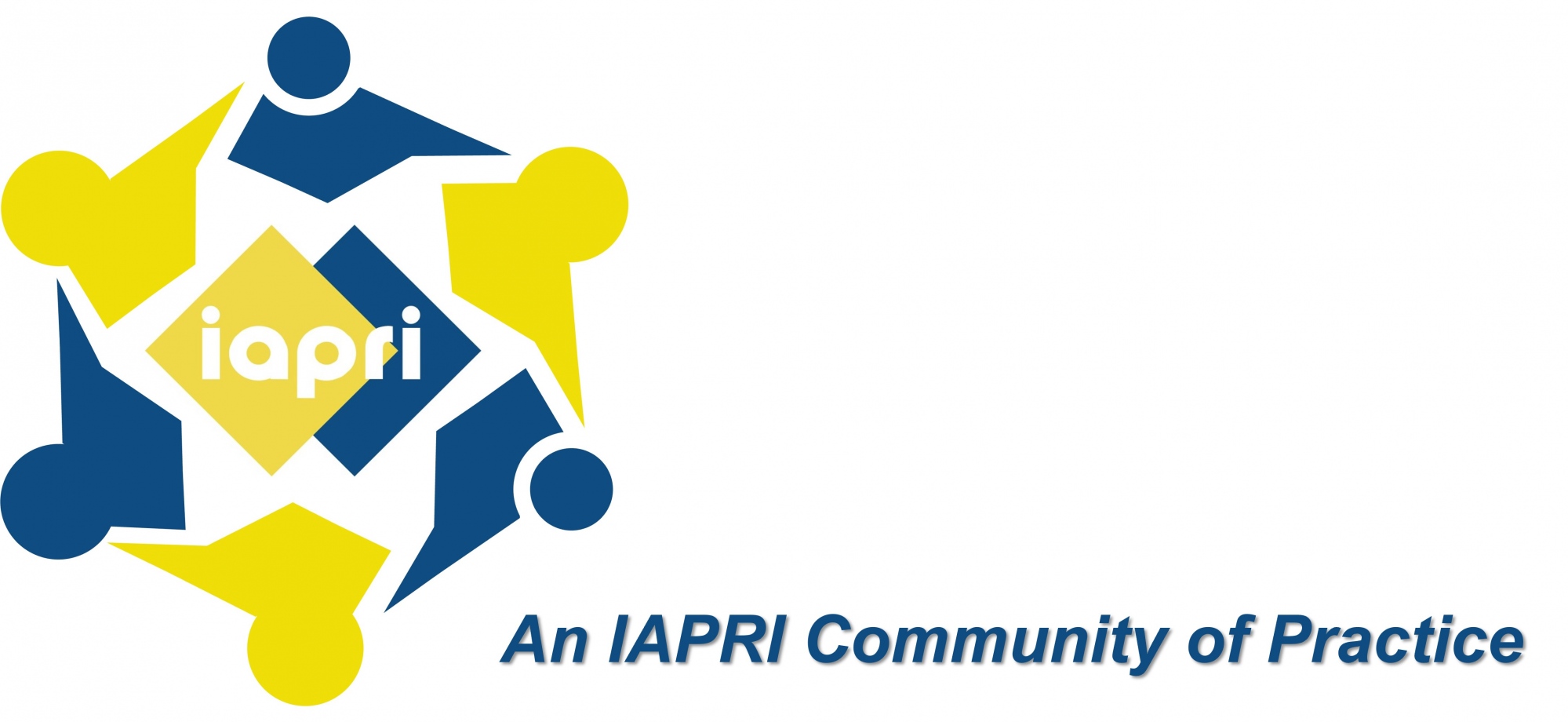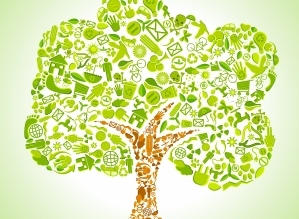Sustainable Packaging

Mission Statement

The IAPRI Sustainable Packaging Community of Practice (CoP) strives to:
- Create a forum and network for exchanging views around packaging and sustainability
- Share ongoing activities
- Foster an understanding of packaging contribution to sustainability
- Highlight the increasing role of sustainability in supply chain
- Develop science-based opinions on pressing issues relating to packaging sustainability
Leader

Dr. Carlos Diaz, Rochester Institute of Technology, Rochester NY, USA
cdamet@rit.edu
Actions and Progress
- Continue CoP meetings at the IAPRI events and post meeting notes
- Lead active discussion on contemporary issues around sustainable packaging
- Seek continuous feedback from members to help improve the working of this group
- Encourage active participation in the LinkedIn Discussion Group (restricted to IAPRI members); as of May 15 2015, there were 80 members
http://www.linkedin.com/groups?gid=1964490
More information
To understand sustainable packaging, we defer to the widely accepted definition from the Sustainable Packaging Coalition (from http://www.sustainablepackaging.org/content/?type=5&id=definition-of-sustainable-packaging):
- Is beneficial, safe & healthy for individuals and communities throughout its life cycle
- Meets market criteria for both performance and cost
- Is sourced, manufactured, transported, and recycled using renewable energy
- Optimizes the use of renewable or recycled source materials
- Is manufactured using clean production technologies and best practices
- Is made from materials healthy in all probable end of life scenarios
- Is physically designed to optimize materials and energy
- Is effectively recovered and utilized in biological and/or industrial closed loop cycles
- Together, these criteria characterize SPC’s vision of sustainable packaging and no ranking is implied in the order of definition criteria.
The IAPRI CoP, “Sustainable Packaging” was founded by Kees Sonneveld. At the Greenville IAPRI meeting, Kennert Johansson took of leadership of this Group. After the Melbourne meeting (June 2014), leadership was assumed by Tamal Ghosh and Carlos Diaz.
The CoP has an important mission to put together the environmental, social and economic elements and to form a vision of packaging and sustainability for the next decade. Building on the basic performance elements of packaging which have been at hand for tens of years but put it in a modern perspective.
Minutes of the CoP Sustainable Packaging Meeting
Date: June 17, 2024
Time: 15:00 – 16:00
Location: SH Valencia Palace Hotel, Valencia
Chair: Alexander Leo Bardenstein (DTI)
Minutes Taker: Anders Kring Clausen (Danish Technological Institute)
Participant List
Dimitri Adons - MPR&S Hasselt University, Dimitri.Adons@uhasselt.be
Roos Peeters - MPR&S Hasselt University, Roos.peeters@uhasselt.be
Brecht van der Hoeven - Pack4Food, brecht.van.der.hoeven@pack4food.be
Bram Bamps - MPR&S Hasselt University, bram.bamps@uhasselt.be
Eduardo Molina - Virginia Tech, molina@vt.edu
Begonya Marcos - iRTA, begonia.marcos@irta.cet
Alexander L. Bardenstein - Danish Technological Institute, alb@dti.dk
Anders Kring Clausen - Danish Technological Institute, acl@dti.dk
Amin Joodaky - Michigan State University, joodaya@msu.edu
Marit Kvalvåg Pettersen - nofima, marit.kvalvag.pettersen@nofima.no
Cristina GuzmánC - Universidad de Monterrey, cristina.guzman@udem.edu
Selcuh Yildirim - Zürich University of Applied Sciences, yise@zhaw.ch
Mieke Buntinx - MPR&S Hasselt University, mieke.buntinx@uhasselt.be
Soraya Sanchez - Persan, ssanchez@persan.es
Alan Campbell - The LCA Centre, alancampbell@thelcacentre.com
Ilknur Ilhan - University of Twente, i.ilhan@utwente.nl
Kristina Eißenberger - Albstadt-Sigmaringen University, eissenberger@hs-albsig.de
Online Participants:
Carlos Diaz-Acosta - RIT
Agenda
- Welcome and Introduction of Members
- Personal introductions of participants
- Mission of the CoP Sustainable Packaging
- Creating a forum and network for exchanging views around packaging and sustainability
- Sharing ongoing activities
- Fostering an understanding of packaging contribution to sustainability
- Highlighting the increasing role of sustainability in the supply chain
- Developing science-based opinions on pressing issues relating to packaging sustainability
- Discussion on Hot Topics Linked to Latest Packaging Regulations in the EU and Worldwide
- EU Parliament and Council agreement on new regulation PPWR2022
- EU Commission Regulation 2022/1616 on food-contact compatible packaging
- Requirements for recycled plastic content in packaging
- Potential shortage of rPET and alternatives
- Advancements in making other packaging materials recyclable
- Challenges in recyclability outside the EU
- Exploring Possibilities for Collaboration
- Potential collaborative projects within IAPRI Sustainable Packaging CoP
- Regular bi-weekly meetings to continue discussions and foster collaboration
Minutes
Welcome and Introduction of Members
Alexander Leo Bardenstein initiated the meeting with a welcome and introduced the agenda. Participants introduced themselves, sharing their names, affiliations, and main areas of expertise.
Mission of the CoP Sustainable Packaging
Alexander Leo Bardenstein presented the mission of the CoP Sustainable Packaging. The
mission includes creating a forum for exchanging views on packaging and sustainability, sharing ongoing activities, fostering an understanding of packaging's contribution to sustainability, highlighting the role of sustainability in the supply chain, and developing science-based
opinions on pressing issues.
Discussion on Hot Topics Linked to Latest Packaging Regulations in the EU and Worldwide
Alexander Leo Bardenstein led the discussion on recent packaging regulations, focusing on the EU Parliament and Council's agreement on PPWR2022 and the EU Commission Regulation 2022/1616. Key points included:
- New EU Regulations:
- The new regulation PPWR2022 mandates that all packaging must be recyclable by 2030.
- EU Commission Regulation 2022/1616 stipulates that currently the only material approved for food-contact packaging is mechanically post-consumer recycled
- PET (rPET).
- Alternative sources for recycled materials in food-contact applications must come from closed and controlled product loops, excluding post-consumer waste.
- Recycled Plastic Content Requirements:
- The regulation outlines specific recycled material content requirements for different packaging types by 2030 and 2040:
- Food contact sensitive packaging: 10% by 2030, 50% by 2040
- Food contact sensitive packaging (PET): 30% by 2030, 50% by 2040
- Single-use plastic bottles: 30% by 2030, 65% by 2040
- Other packaging: 35% by 2030, 65% by 2040
- The regulation outlines specific recycled material content requirements for different packaging types by 2030 and 2040:
- Potential rPET Shortages:
- McKinsey & Company estimates predict significant rPET shortages by 2030, potentially tripling the demand over supply.
- Discussion on alternative materials such as PP, PS, LPB, and HDPE. Each material has its own challenges and advancements in recyclability.
- Advancements in Recyclability:
- Berry Global’s CleanStream® project aims to develop a closed-loop system for recycling household waste-PP into food-grade packaging.
- A consortium has developed a recyclable polystyrene yoghurt pot with 98.5% polystyrene content.
- LPB recycling facilities have been established in Northern Europe, though challenges remain in direct food-contact applications.
- HDPE recyclability for food-contact applications is reviewed on a case-by-case basis by EFSA and FDA.
- Challenges Outside the EU:
- Discussion on the differences in recycling regulations and challenges faced by non-EU countries, including the impact of EU regulations on international markets.
- The US and Canada are looking to EU regulations to guide their compliance strategies, with varying degrees of implementation at state and federal levels.
Points Discussed:
- Recyclability Challenges:
- Plastic recyclability is not necessarily into food contact packaging.
- Challenges in cyclability outside the EU and the perspectives of non-EU attendees.
- Regulation Focus:
- EU regulations are based on saving resources rather than recyclability based on Life Cycle Assessment (LCA) thinking.
- Current movements emphasize monoplastics and compliance needs.
- Biobased and biodegradable materials are not prioritized in the legislative process.
- Global Impact:
- EU legislation influences international markets, with North American exporters looking to comply with EU standards.
- The US lacks federal legislation, with some states enforcing Extended Producer Responsibility (EPR).
- Canada follows EU regulations more closely.
Exploring Possibilities for Collaboration
Rafael Auras facilitated a discussion on potential collaboration within the IAPRI Sustainable Packaging CoP. Key points included:
- Regular Bi-Weekly Meetings:
- Proposal to hold bi-weekly meetings every second Friday at 4:00 PM CET / 10:00 AM EST to continue discussions and foster collaboration.
- Future Projects:
- Encouraging participants to propose and discuss potential collaborative projects that align with the CoP's mission.
- Possible areas of collaboration include developing new recycling technologies, addressing regulatory compliance, and exploring sustainable materials.
Conclusion
The meeting concluded with a call to action for participants to engage in upcoming bi-weekly meetings and contribute to ongoing discussions and collaborative efforts.
Next Steps:
Carlos Diaz-Acosta will send out Zoom invitations for the bi-weekly meetings.
Participants are encouraged to propose topics and projects for future discussions.
Minutes prepared by: Anders Kring Clausen (Danish Technological Institute)